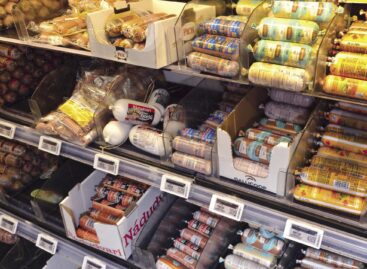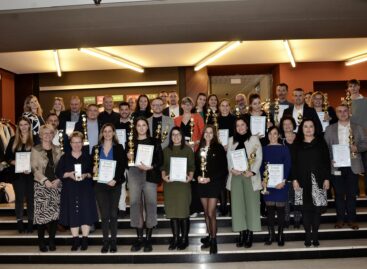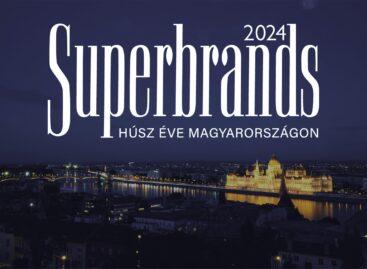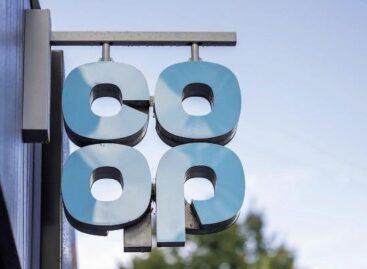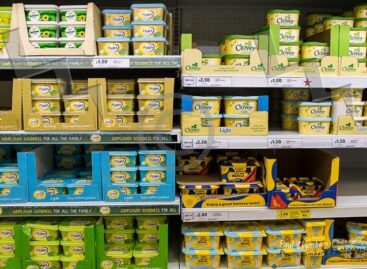Magazine: The salami end isn’t here yet
In the second half of 2017 the regulations in the Hungarian Food Book became stricter and this affected the cured meat market too: many products don’t qualify as salami and sausage any more, and these can only be marketed under fantasy category names such as ‘slice’, etc. This led to higher product quality in the category but extra production costs, too. Together with the VAT cut on pork in 2016, which prompted home sausage and salami making, the changes could have entailed lower sales in the category, but they didn’t.

Zoltán Nagygyörgy
product manager
Pick Szeged
Zoltán Nagygyörgy, product manager of Pick Szeged Zrt. told our magazine that Nielsen data reveal: both volume and value sales of cured meats increased in 2017, by 2.4 percent and 8 percent, respectively. Sausage volume sales were up 2.1 percent and salami volume sales jumped 2.7 percent; value sales grew by 7.9 percent and 8.1 percent.

Krisztina Bódi
marketing director
Kométa 99
Krisztina Bódi, marketing director of Kométa 99 Zrt. informed that Kométa products weren’t affected by the new rules as their meat content had been higher than the new limit. She also reported growing sales in the category, but mentioned that cheaper import products also have a relatively big market share.

Éva Tamáskovitsné Gila
marketing manager
Gyulahús
Éva Tamáskovitsné Gila, marketing manager of Gyulahús Kft. told: they didn’t have to increase the meat content of their products either. In 2017 they realised 8 percent higher sales than in 2016.

Veszna Krunity
purchasing and sales manager Alföldi-Hús
Alföldi-Hús Zrt.’s experience is that the new regulation has made a clear distinction between two quality categories in the cured meat market. Purchasing and sales manager Veszna Krunity told: lower-priced products still have a stable market position, just like before the changes. It varies from retail chain to retail chain whether cheaper sausages and salamis or more expensive, high-quality ones sell better.
Sales of pre-packaged cured meat products are growing. Mr Nagygyörgy revealed that country-specific promotions can make consumers try new products. He opines that the main innovation direction is packaging. Ms Bódi talked to our magazine about classic ‘delicatessen’ salami being the most popular flavour version. She added that in certain sales channels private label products sell very well.

Péter Fábián
brand manager
Pick Szeged
In the cured meats category Pick Szeged Zrt. was able to increase both volume and value sales last year. Flagship brand PICK was especially successful in 2017. PICK brand manager Péter Fábián informed us that in the last few years they stopped marketing similar products under different brand names of the company (e.g. PICK and HERZ in the case of sausage). Almost 100 percent of consumers know PICK Winter Salami, so the main task is to expand the product’s buyer base.

Lívia Presits
brand manager
Pick Szeged
HERZ brand manager Lívia Presits told that special-taste HERZ products are made using top-quality ingredients. This product selection targets not only quality-hungry young consumers but also those who follow a conscious lifestyle. The latest range under the HERZ brand is Vital products: HERZ Vital salami is free from E-numbers, artificial flavouring, colouring and flavour enhancers. Pick Szeged’s FAMÍLIA brand focuses on Szilviaprice-sensitive consumers.

Szilvia Vízhányó-Pitrik
senior brand manager
Pick Szeged
The engine of sales is FAMÍLIA Harmónia cured meats – in the salami category these have the biggest sales in the branded product segment after PICK (Nielsen data from 2017) – informed senior brand manager Szilvia Vízhányó-Pitrik. Recently the FAMÍLIA Toast Ham Slice product has been launched.
Kométa’s new product in the category is the Gusto Mediterraneo product selection, which consists of classic Italian-types salamis in whole and sliced variants. Ms Bódi told that Vero salami is the most successful product, with its stylish black packaging. Recently Kométa has cut the salt content of the main products: those marked with a blue sticker have 25 percent less salt in them – but the delicious taste has remained the same. Gyulahús’ artisan Kézműves product range is already available in the shops of several retail chains. The company’s Extra Hot sausage won the Hungarian Product Grand Prize last year. Pokol Salami was rewarded with two gold stars at an international blind test. Gyulai beef and venison product ranges are also more and more popular in both Hungary and abroad. They are preparing for the summer with grill sausages, in more sizes and sweet chilli, chilli-lime, horseradish and Hungarian-style flavours. Gyulahús celebrates 150 years of cured meat production this year with a campaign that involves a spectacular commercial.
Alföldi-Hús Zrt. joined the Gallicoop Group 3 years ago and the Szarvas-based company manufactures all the cured meat products of the turkey processing group. In 2017 cured meat product sales doubled. The company has products in both the manufacturer brand and private label segments. Ms Krunity told that their innovation work takes two directions: sausages that contain bacon too (Szarvasi Turkey Sausages) follow the traditions in both taste and look, while sausages that contain no pork ingredients (Svábföldi Sausages) have created a new category. Alföldi-Hús’ experience is that shoppers are open to trying these high-quality turkey meat products when they have learned about their values and advantages. Gallicoop has a closed system for producing the meat for making cured meat products, and this guarantees that only reliable, top-quality ingredients are used in production. //
Related news
Liver patés entering a new era
Liver paté is a traditional product on the dinner tables…
Read more >This year’s last Trade Marketing Club session is coming – with the POPAI POP award ceremony
On November 28, we invite everyone to the special room…
Read more >Measuring success for 20 years: double celebration by Superbrands Hungary this year
2004 was the year when Hungary’s leading brands were rated…
Read more >Related news
Co-op uses AI to fight GBP 40m losses in the UK
British supermarket chain Co-op is using AI technology to detect…
Read more >Plant-based brands risk losing consumer interest, says Flora exec
Flora Food Group marketing director Ian Hepburn has warned that…
Read more >Albertsons Terminates Merger With Kroger
Albertsons has terminated its $25-billion (€23.7 billion) merger agreement with Kroger after…
Read more >
